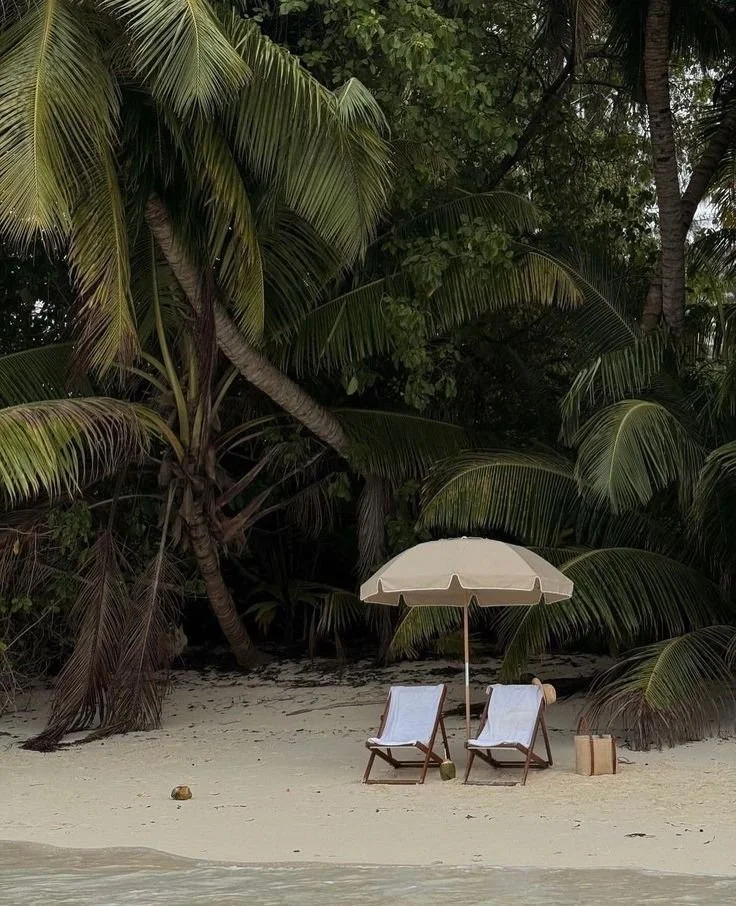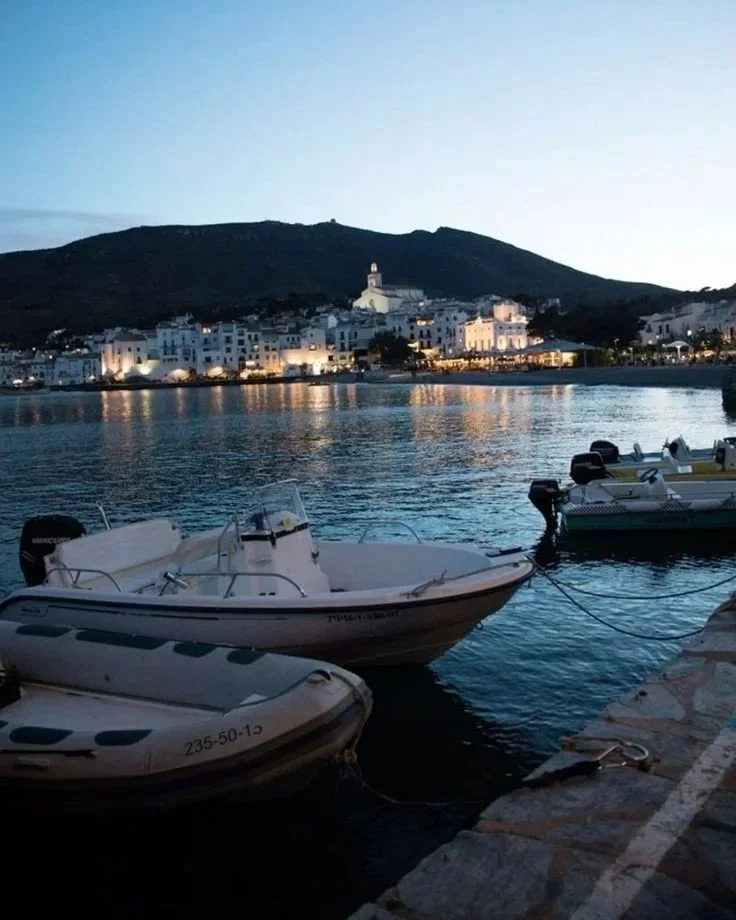Where the Tastemakers Escape To (And Why They’ll Never Tell You)
Doesn’t it feel as though you take a trip to Dubai every few months, when in reality, you’ve never set foot in the city (and have no desire to).
It’s like I’ve seen so many videos of the same mall, the same beach bars, the same Jumeriah Palm pool, with the same wide-angle shot of the same Oran sandals or a pair of the same brass earrings.
Seriously.
Scroll through any feed and you’ll see the same lunches at Scorpio’s, the same Amalfi balcony angles, the same trips that have been rinsed and repeated into oblivion.
And it’s not that these destinations suddenly became unworthy (aside from Dubai), but they became overexposed. Everyone is broadcasting, everyone is curating, everyone is signalling. In the rush to show the world that they were living well, something vital got lost: the feeling of travelling for yourself.
While most people chase content, the tastemakers are shifting elsewhere. Not to hide, but because there’s a level of life you reach where documenting becomes unnecessary. The point is the experience, not the applause.
And that’s the part most people miss.
The Psychology of Keeping Experiences Offline
Whether you like it or not, once someone reaches a certain level of wealth, influence, or internal self-possession, they simply stop caring about the exchange rate.
Posting becomes optional, and sharing becomes selective. Some experiences become completely off-limits to the public because they weren’t designed for consumption.
The psychology is simple:
Scarcity feels better when preserved, not broadcast -When something is special, you don’t dilute it by making it public.
Some places hold energy that doesn’t translate through a screen - Sharing it would cheapen it.
Privacy is a luxury - When you have the option to retreat, you guard it.
This niche group are tired of surveillance culture - Every moment documented becomes a moment that doesn’t feel as though it belongs to them.
It’s about choice, and those choices reveal where the interesting places are now.
Where They Actually Go (But Won’t Tell You)
And so, because of this epidemic of oversharing and the saturation of everyone holidaying in the same place, the shift to discover hidden gems is increasing, to places you only hear about by word of mouth, by accident, or if you’re a Living in Luxury reader. They don’t trend, they don’t scream for attention, and they attract the people who can afford to be discerning.
Kotor Bay, Montenegro
Kotor Bay, Montenegro
This is not Montenegro as Instagram knows it.
Kotor Bay is cinematic without trying. Mountains that rise from the water like a painted backdrop, old stone towns untouched by the frenzy of commercial tourism, and a harbour where you’ll quietly spot superyachts that never announce their arrival.
The tastemakers go here because it feels both ancient and elevated; it’s the kind of place where the silence between cliffs says more than any itinerary.
Lamu, Kenya
Lamu, Kenya
In the House of Selene we visit The Studio to regulate our nervous system. However, you could also take a trip to Lamu, Kenya.
Stone houses with carved wooden doors, coastal winds, and architecture that predates your grandmother’s grandmother.
Lamu is loved because it reconnects you to something elemental: heritage, craftsmanship, ritual. You’ll find designers, founders, and creatives spending long, relaxed weeks here with no intention of posting anything.
It’s the sort of place that rewires your nervous system without making a production out of it.
Canouan, St. Vincent & The Grenadines
Canouan, St. Vincent & The Grenadines
Now, as someone whose heritage stems from some of the most popular Caribbean islands known for their luxurious nature, it pains me to promote another. But it would go against the point of the article if I didn’t, and quite frankly, in the Caribbean, we are all family.
That’s why you have to check out Canouan, the kind of island you visit when you’re done visiting ‘popular’ Caribbean islands. It’s pristine, fiercely private, and designed for people who don’t need anyone’s approval.
But something I want to touch on is: this is Caribbean land. Black land. Ancestral land. And black women should never feel like outsiders in spaces our heritage built.
As more black women rise financially, holidaying in places like Canouan becomes a powerful statement - it’s personal. You’re not intruding on someone else’s paradise. You’re visiting what your ancestors touched. Travelling here becomes a subtle reclamation. You’re stepping into luxury not as a guest begging for a seat at the table, but as a woman whose lineage is intertwined with the soil beneath the resorts.
Tastemakers love St. Vincent because it hasn’t been commercialised to death. But for black women who are stepping into wealth, it offers something more profound: a reminder that we belong here.
That we deserve to experience our islands at the highest level, and that luxury in the Caribbean isn’t reserved for visitors; it’s ours too.
Unfortunately, not all islands in the Caribbean are accommodating to their own locals and put the wants of outsiders first. Recently, St. Lucia has been doing a remarkable job reminding visitors and the tourist board that we are nothing to be played with and if you want to enjoy our island, you need to learn how to share.
And in Barbados, trust and believe we can and will walk, play and lime (an island term for chilling) right on Sandy Lane beach in front of Rihanna’s apartment and next to the hotel where every ‘A-lister’ stays.
I will always encourage black travellers to explore all corners of their home.
It shifts the imagery.
It shifts the narrative.
It shifts who gets to feel at home in paradise.
Cadaqués, Spain
Cadaqués, Spain
Naturally, I had to feature somewhere that I know my fellow art lovers would appreciate.
Salvador Dalí’s favourite escape was for a reason. Cadaqués is where the well-travelled go when they don’t want their holiday to become a social media trend. Whitewashed houses, rugged Catalan coastline, intimate coves - it’s the secret that accidentally stayed a secret.
Rich in culture, understated in energy, and designed for long lunches, white linen, and slow mornings on the water.
What Discretion Communicates About Power
Let’s cut through the middle. The tastemakers don’t need to market their lifestyles. They don’t need to prove they were somewhere, because the people who matter already know. Discretion becomes a hierarchy of its own, not for elitism, but for peace, comfort and control over their time.
Here’s what keeping experiences offline communicates:
I don’t travel for validation.
My life is full, whether you see it or not.
Access to my world is earned, not assumed.
I don’t share everything because everything isn’t for everyone.
It’s so funny because the ironic thing is that the moment you stop posting with the intention of being perceived, usually by people who don’t care anyway, your life instantly feels like an upgrade as your identity returns to you.
The Rise of Private Memberships and Low-Profile, High Luxury Destinations
There’s a reason why exclusive travel clubs, private villa networks, invitation-only resort programs, and ultra-low-profile islands are exploding right now. People with means want access, not attention.
We’re seeing a shift toward:
Members-only travel networks that guarantee privacy and rare locations
Cities-within-cities where wealth circulates organically and invisibly
Properties without social media footprints on purpose
These places have no interest in flirting with recognition. Instead, they curate to attract people who are done proving themselves. Take the Aman, for example. What makes it so powerful is that it doesn’t chase luxury; it defines it, offering a space designed for people who travel to be inspired and evolve without being seen.
It’s luxury that exists beyond the algorithm.
Finally
When travel becomes less about documenting and more about depth, the world opens differently. You see details others overlook. You meet people you would never have found online.
You return home, different.
The tastemakers don’t post everything because they understand something most people never learn:
The more meaningful and authentic a moment is, the more powerful it becomes when it remains yours.
And that’s the direction luxury is heading, towards experiences that don’t need a camera to validate them.





